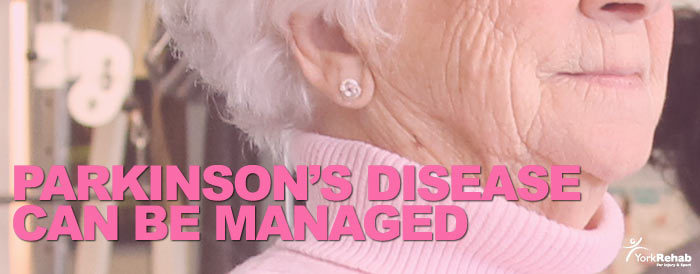
Parkinson’s Disease Can Be Managed


Parkinson’s disease (PD) is a progressive disease of the nervous system marked by tremor, muscular rigidity, and slow, imprecise movement, affecting mostly middle-aged and elderly people. It is associated with degeneration of the basal ganglia of the brain and a deficiency of the neurotransmitter dopamine. PD is known as a chronic, long-term condition that will require ongoing monitoring and management to maintain the patient’s quality of life.
Most common symptoms: tremor, slowness and stiffness, rigidity of the muscles, decreased initiation of movements and impaired balance that can lead to repetitive falls.
Other symptoms: fatigue, soft speech, depression, decreased motivation, constipation and sleep disturbances.
Usually the management of the disease is based on drug treatment and multidisciplinary care for the long term, slow and progressive symptoms.
Once the diagnosis of PD is made, the next step is to decide on a rehabilitation program that will prevent decline of the patient’s mobility, maximizing safety and independence.
A specialized Registered Physiotherapist can develop a treatment program, according to each patient’s needs. The program might include:
- “cued” exercise training
- treadmill training, gait re-education
- balance
- improvement of movement initiation
- improvement of range of motion (BIG movements)
- enhancement of aerobic capacity
- improvement of functional independence, including mobility and activities of daily living
- education on PD self – management
These all result in benefits. However, continued therapy is required to sustain benefits and gains. This is particularly important with Parkinson’s Disease patients since lack of initiation and motivation can be a barrier to rehabilitation.
You can live better and we can help!
Comments are closed.

